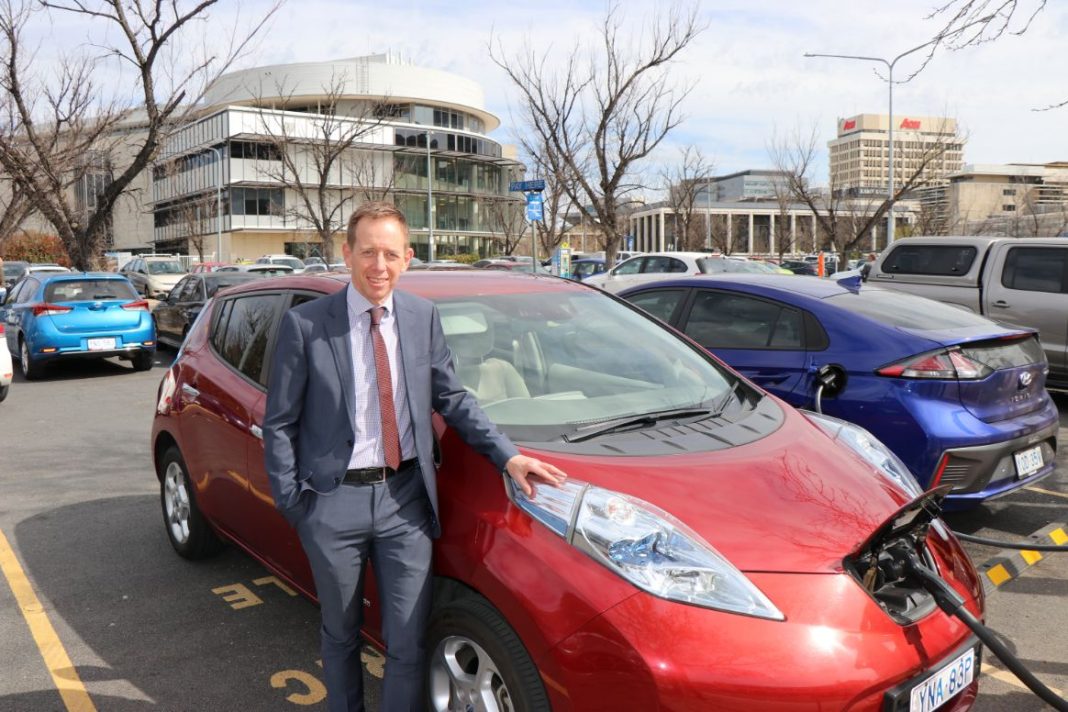The ACT Government has signed the COP26 declaration on accelerating the transition to 100 per cent zero emission vehicles to achieve the goals of the Paris Agreement.
At the UN Conference of Parties (COP) climate summit overnight, countries, governments, and car manufacturers pledged to end the sale of petrol cars in developed countries by 2035, and work towards all sales of new cars and vans being zero emission globally by 2040. Owned or leased car and van fleets would be converted to zero emission vehicles by 2035.
Australia did not sign the statement.
“As the world starts the much-needed shift to zero-emission vehicles, the Federal Government has no phase-out timeline for petrol cars or targets for the take-up of zero emissions vehicles,” said Shane Rattenbury, ACT Minister for Emissions Reduction.
Earlier this week, the Commonwealth Government said it would not offer rebates or tax breaks to subsidise the expansion of electric and hybrid vehicles. Unlike other OECD countries, the ABC reported, Australia does not have an emissions standard for car manufacturers, which makes it difficult for manufacturers to sell electric vehicles here. Instead, the Federal Government expects that by 2030, only a third of new sales would be electric vehicles.
“That is too little, too late,” Mr Rattenbury said. “Many car manufacturers have committed to selling only electric vehicles by 2030 or 2035. There is an inevitable transformation taking place, and Australia is stalled at the starting line.”
In the Parliamentary and Governing Agreement, the ACT Government promised to set an ambitious target for new ACT vehicle sales to be zero emission by 2030. That target will be announced next year.
In the 2020 Election, the ACT Greens committed to adopting a target for 90 per cent of new car sales to be zero-emission by 2030, but the official ACT Government target still needs to be decided in Cabinet, a Greens spokesman said.
“Our efforts in the ACT are helping to make zero emissions vehicles more affordable, and recharging more convenient,” Mr Rattenbury said. “We hope to see supportive national policies at some point in the future so Australia can catch up to the rest of the world on the electric vehicles revolution.”
The government introduced zero stamp duty and two years of free registration for people newly registering new and second-hand EVs.
Zero emissions vehicles had increased by a third on ACT roads since these measures were introduced, Mr Rattenbury said; as of 1 October, more than 1,300 zero emissions vehicles had been registered in the ACT.
The government is rolling out a network of 50 public charging stations, and finalising its Electric Vehicles Charging Masterplan. It also offers $15,000 interest-free loans to reduce the up-front financial burden of electric vehicles and charging infrastructure.
By the end of August, the Electric Vehicle Council could confidently declare that the ACT was a national leader in electric vehicle policy.



